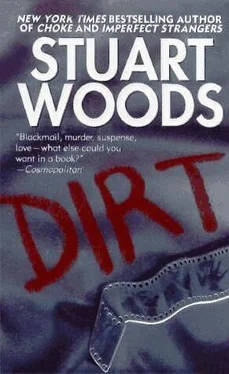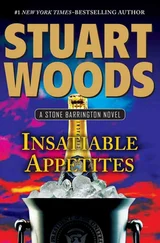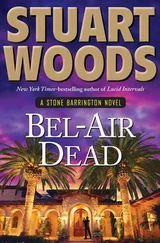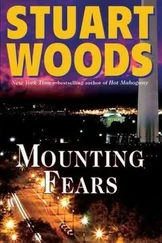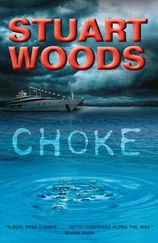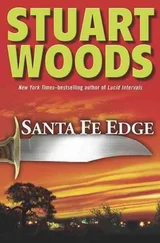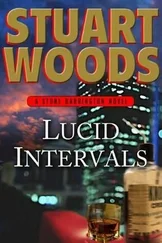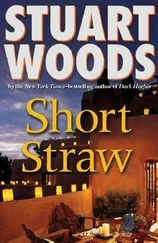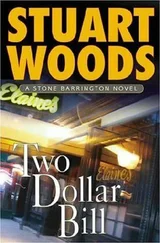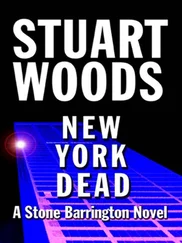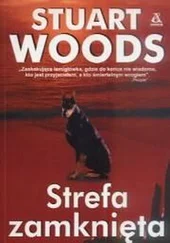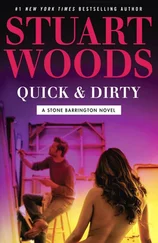Stuart Woods - Dirt
Здесь есть возможность читать онлайн «Stuart Woods - Dirt» весь текст электронной книги совершенно бесплатно (целиком полную версию без сокращений). В некоторых случаях можно слушать аудио, скачать через торрент в формате fb2 и присутствует краткое содержание. Жанр: Триллер, на английском языке. Описание произведения, (предисловие) а так же отзывы посетителей доступны на портале библиотеки ЛибКат.
- Название:Dirt
- Автор:
- Жанр:
- Год:неизвестен
- ISBN:нет данных
- Рейтинг книги:3 / 5. Голосов: 1
-
Избранное:Добавить в избранное
- Отзывы:
-
Ваша оценка:
- 60
- 1
- 2
- 3
- 4
- 5
Dirt: краткое содержание, описание и аннотация
Предлагаем к чтению аннотацию, описание, краткое содержание или предисловие (зависит от того, что написал сам автор книги «Dirt»). Если вы не нашли необходимую информацию о книге — напишите в комментариях, мы постараемся отыскать её.
Dirt — читать онлайн бесплатно полную книгу (весь текст) целиком
Ниже представлен текст книги, разбитый по страницам. Система сохранения места последней прочитанной страницы, позволяет с удобством читать онлайн бесплатно книгу «Dirt», без необходимости каждый раз заново искать на чём Вы остановились. Поставьте закладку, и сможете в любой момент перейти на страницу, на которой закончили чтение.
Интервал:
Закладка:
CEW: When did you first know you wanted to be a novelist?
SW: My mother taught me to read a year before I went to school, and I became a voracious reader. I first tried to write a novel when I was nine, but I gave up when I found out how hard it was.
CEW: Did you take any formal writing classes or seminars?
SW: The only writing class I ever took was a correspondence course at the University of Georgia, because I needed an additional five credits to graduate. Any teaching I learned from came from my early bosses in the advertising business, who were sticklers for persuasive prose. I learned a lot there.
CEW: I’d like to talk about the latest two novels which feature the popular character, Stone Barrington: Dead in the Water and Swimming to Catalina . What was your inspiration for the storylines?
SW: The inspiration for Dead in the Water came from an article I read in a yachting magazine about an incident where a woman’s husband died in the middle of the Atlantic and she managed to sail herself the rest of the way across. I wrote a short story about it for another sailing magazine, and later, it occurred to me that it might make a basis for a novel. Still later, it occurred to me that it might make a Stone Barrington novel. Near the end of the book, when Arrington marries her movie star, I thought that might make a good beginning for the next book, which is how Swimming to Catalina came along.
CEW: In Swimming to Catalina , Stone Barrington returns and Hollywood and its pretensions are skewered – hilariously. Did you spend a lot of time in Hollywood to research the story or did it grow out of your experience in having Chiefs turned into a TV mini-series?
SW: My experience of Hollywood comes from being in Los Angeles on book tour every year or two and having some friends in the movie business. Chiefs was filmed in Chester, South Carolina, and that never took me to California. I didn’t do any specific research for the book.
CEW: What or who was the inspiration for Stone Barrington?
SW: There was no particular inspiration for Stone Barrington. I just put him together as the story went along, and I liked him, so I brought him back.
CEW: How much of Stuart Woods is there in Stone Barrington?
SW: Stone and I share a few tastes, but we are very different people.
CEW: How did you first become involved with sailing?
SW: I moved from London, where I was working in advertising, to Ireland, in 1973, to begin to write my first novel. I worked for two days a week at an ad agency in Dublin to support myself, and spent the rest of the time in a little flat in the stable yard of a castle in County Galway. While there, I took up dinghy sailing against small children, losing regularly. You can’t win dinghy races when you weigh more than the boat.
CEW: What was it like sailing alone for six weeks during the OSTAR?
SW: The company was good.
CEW: What was the most difficult challenge you have faced in your sailing career?
SW: That came when the forestay broke, about four hundred and fifty miles north of Bermuda… I was holding onto it at the time, and it could have killed me, but I was lucky. I managed to repair it and finished the race.
CEW: Your love for the water and yachting is reflected in your work. Do you still spend much time on the water?
SW: I sail on other people’s boats, when asked, and my small motorboat is for sale, in Florida.
CEW: After Blue Water, Green Skipper , you finished your first novel, Chiefs . What was the most difficult aspect of writing this novel?
SW: The most difficult aspect of writing Chiefs was to finish it. It took me eight years. After that, I gained confidence, and now I write two books a year.
CEW: Please tell us about your writing habits: do you write everyday, do you use the computer, do you always write in the same location or do you take a laptop everywhere you go etc.?
SW: I usually write a chapter – five to ten pages – at a sitting, which usually comes at mid-afternoon and takes under two hours. First, I re-read the previous day’s work and make small corrections, and that gets me into the new chapter. Near the end of a book, I tend to write two chapters a day, one in the morning, and one in the afternoon. I write wherever I am, and I take a laptop when I travel while writing a book.
CEW: You are known for being a master of creating suspense in a novel. What techniques do you use when plotting to achieve that timing of the suspense and action which keeps the reader eager to turn the page to see what happens next?
SW: The process of writing is still a kind of magic to me, and I never try to analyze it too deeply, for fear that it might stop working. I do try to make each chapter a small story in itself, with a beginning, a middle and an end, and I try to end each one in such a way as to lead naturally into the next one. It seems to work.
CEW: What did you enjoy most about having Chiefs turned into a mini-series?
SW: I enjoyed the whole process. The producers were kind enough to let me read each generation of the screenplay, as it was being written, and to ask for my suggestions, some of which they actually took. I also enjoyed visiting the set in South Carolina and playing a small part (an FBI agent) in part three. They “dressed” the town three times, for the different periods of the story, altering something like twenty-three store-fronts and planting a large oak tree in the center of town. I was amazed at the thoroughness of the job. I made some friends, too; I still see Martin Manulis, the executive producer, when I am in L.A., and also Charlton Heston, and Steven Collins, and I hear from the producer, Bill Deneen, once in a great while. The director, Jerry London, pops up now and then; he and his wife usually stop and stay the night when they’re traveling from a shoot in Toronto to New York, and we play golf.
CEW: How much do you use the Internet? Do you find it valuable for research?
SW: I use the Internet mostly to answer email from readers, but I also keep track of my investments, buy cars, rent vacation houses and read about things that interest me, but I haven’t used it much for research, because I don’t do a lot of research these days.
CEW: Rumor has it that you are writing a memoir – is this true?
SW: I have written some chapters of another memoir, but I have no idea when it will be finished or when it will be published. I guess it’s not a priority right now.
This interview was originally published July 1998 in The Internet Writing Journal (R),
http://www.writerswrite.com.

Интервал:
Закладка:
Похожие книги на «Dirt»
Представляем Вашему вниманию похожие книги на «Dirt» списком для выбора. Мы отобрали схожую по названию и смыслу литературу в надежде предоставить читателям больше вариантов отыскать новые, интересные, ещё непрочитанные произведения.
Обсуждение, отзывы о книге «Dirt» и просто собственные мнения читателей. Оставьте ваши комментарии, напишите, что Вы думаете о произведении, его смысле или главных героях. Укажите что конкретно понравилось, а что нет, и почему Вы так считаете.
